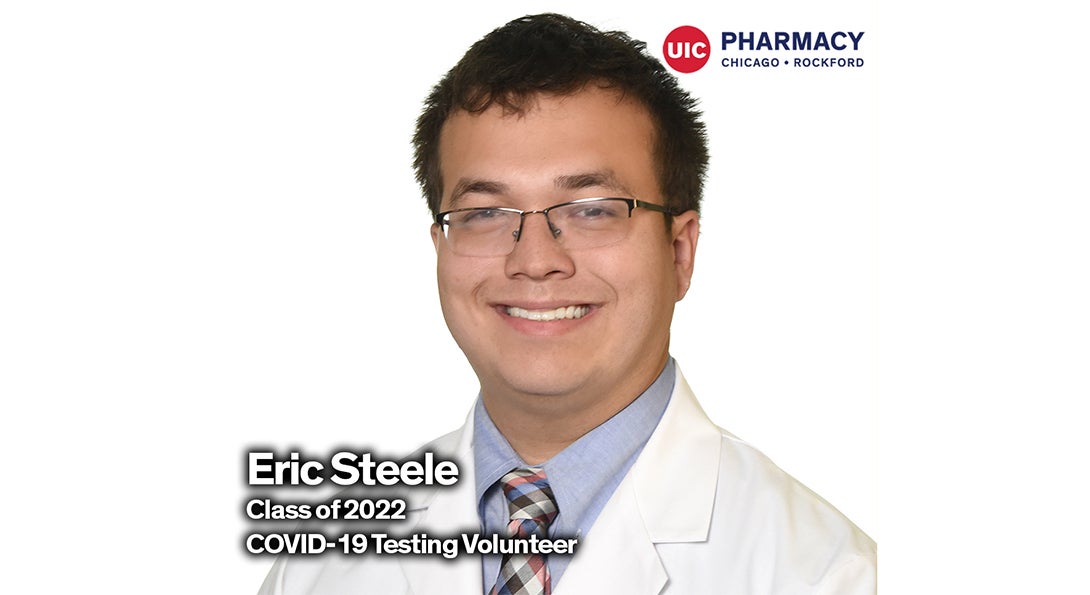Student pharmacist, Eric Steele, volunteers to test patients and contact trace in hopes of mitigating COVID-19 spread

Eric Steele, P3 student pharmacist, has been volunteering and working all summer to help quell the coronavirus pandemic.
While the COVID-19 pandemic has forced everyone to adjust to a “new normal,” it's given many student pharmacists the chance to help others and develop as future clinicians. This summer, Eric Steele (P3), worked at the UI Health L.P. Johnson Family Health Center in Rockford, IL, monitoring the temperature and blood oxygen of positive COVID-19 patients to determine if such monitoring can be used to predict severe respiratory symptoms.
“I was originally planning on working with Dr. Annette Hays on a project to improve A1C in diabetes patients at the clinic. The project was unfortunately canceled due to the proliferation of COVID-19, but I still kept in touch with Dr. Hays over potential projects,” says Eric. In addition to testing temperature and blood oxygen levels of positive patients, he has also been gathering additional data needed for their research.
Eric is also responsible for assisting with contact tracing, which is the attempt to trace the spread of contagion through determining where infected patients have been since the earliest possible point of infection. “Most patients I have talked with have been very forthcoming and helpful, though sometimes they were unable to remember specifics. After the conversation, we would then go over some education about self-quarantine and further testing before letting the patient get on with their day.”
Additionally, Eric has also been volunteering at the Crusader Community Health-operated COVID-19 testing site in the parking lot of Auburn High School in Rockford. “I found out about this volunteer opportunity through an email sent out by Vice Dean Kevin Rynn highlighting volunteer opportunities around the time of the initial stay-at-home order.” Originally, Eric was slated to aid with the testing site housed on our Rockford Campus. However, the policy changed and, instead, volunteers were asked to assist with the testing site at Auburn High School – and he’s been volunteering there since.
Eric was transparent about his concerns with volunteering to test individuals for COVID-19. “Before I went to the testing site for the first time I was quite nervous about not only contracting the virus but also about messing up the testing process.” Nonetheless, Eric’s bravery helped him push through and continue volunteering. “As I started volunteering, this nervousness quickly gave way to a feeling of determination. While I am certainly not excited by volunteering at a testing site during a global pandemic, I do feel a desire to help out with these health efforts and an obligation due to being in a position where I can help.”
The biggest lesson Eric has learned throughout this experience is the importance of not only making sure patients know what they should do, but why they should do it. “We live in a time where many have been losing faith in experts. Laying out the reasons why we are performing these health measures can go a long way in convincing people. Not everyone is going to listen, but it is crucial to remember that many do.” Eric hopes that all medical professionals hold on to this lesson, even after the pandemic has run its course. “It does not matter whether it is to mitigate an infectious disease or an autoimmune disease, people are more willing to take actions when they understand the importance of those actions.”